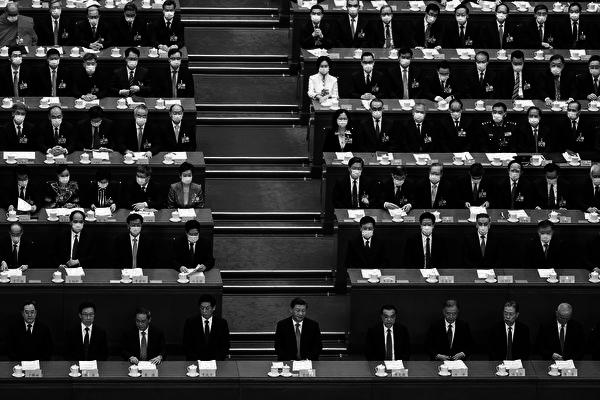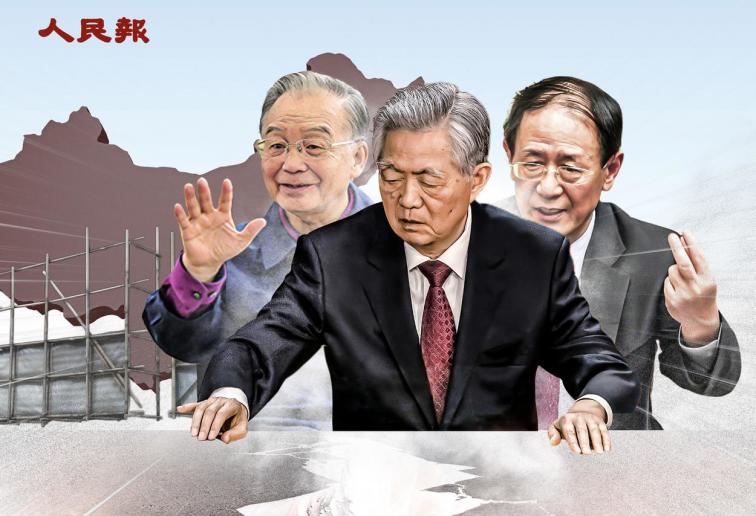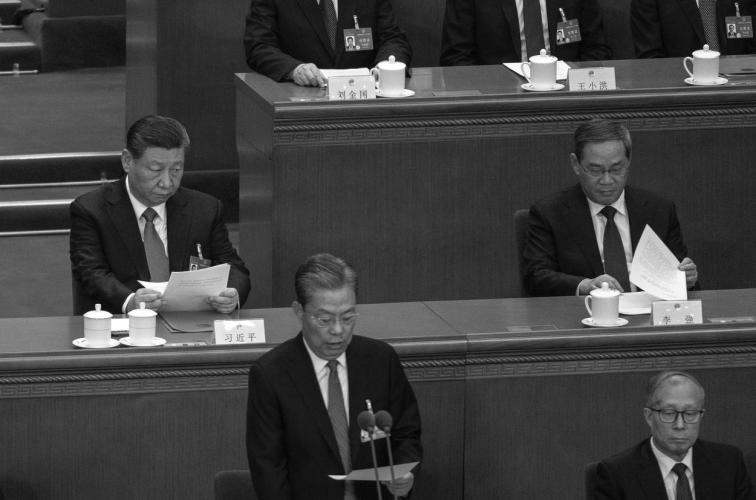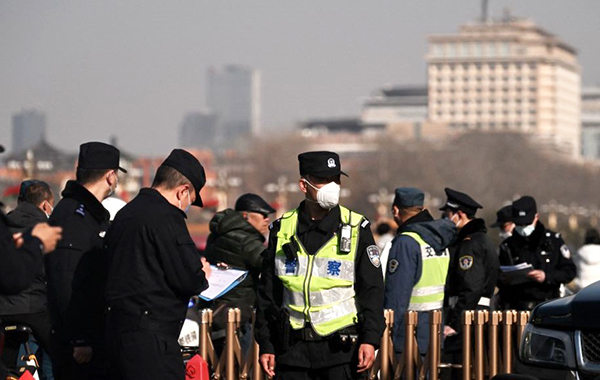On March 5, 2023, CCP leaders attended the opening session of the National People's Congress.
[People News] On June 30, the CCP Politburo convened a meeting to review the 'Regulations on the Work of the Decision-Making and Coordination Institution of the Party Central Committee.' The CCP's official media outlet, Xinhua News Agency, stated that the establishment of this institution is a crucial institutional arrangement aimed at enhancing the centralised and unified leadership of the Party Central Committee over significant work and promoting the implementation of major tasks. Analysts suggest that this development lends further credibility to the rumours regarding Xi Jinping's diminishing power.
Recently, there have been numerous reports indicating that Xi Jinping has lost significant authority and is facing health issues, while Central Military Commission Vice Chairman Zhang Youxia is reportedly gaining influence behind the scenes. The CCP's sudden announcement regarding the review of the 'Regulations on the Decision-Making and Coordination Institution' clearly supports the credibility of these rumours to some extent. The CCP is moving towards collective leadership; Xi is no longer the sole leader or the core figure, and Xi Jinping Thought appears to have been sidelined. The creation of this regulation provides a basis for the elder faction to participate in high-level discussions, conveying a subtle and complex message.
Current affairs commentators Li Linyi and Yue Shan, among others, remarked, 'A new formal operational structure has been designed at the upper echelons in Beijing. The new CCP leadership is functioning through this institution, reminiscent of the previous Central Advisory Commission, which at least signals that Xi Jinping has been officially sidelined. The denial of Xi's core leadership aligns with the recent discussions about the anti-Xi faction's victory in the ongoing factional struggles within the CCP, which have been widely circulated both domestically and internationally.'
According to reports from overseas media, Xi Jinping has been losing influence since last April, with several attempts to regain power ending in failure. Each of these attempts has resulted in quicker and more extensive purges of Xi's faction, including the fall of Miao Hua, the disappearance of He Weidong, and the recent dismissal of Navy Chief of Staff Li Hanjun as a representative of the National People's Congress. Recently, there have been reports from abroad indicating that the high-level leadership of the Communist Party is undergoing a complex power restructuring, as the CCP seeks to balance regime stability with factional interests, leading to an expansion of the Politburo Standing Committee to nine members.
Shen Mingshi, a researcher at the Taiwan National Defence Security Research Institute, analysed that there have been recent reports of an internal meeting within the CCP known as the Xishan Conference, attended by advisors such as Hu Jintao and Wen Jiabao, who are allowed to participate in the Politburo Standing Committee meetings. This news may be linked to the 'Regulations on the Work of the Party Central Decision-Making Coordination Mechanism,' which essentially provides a framework for the elder faction's participation in Politburo meetings.
Analysts suggest that if Wang Yang and Hu Chunhua, who are favored by Hu Jintao and others, wish to become General Secretary, they must first secure a position on the Standing Committee. Zhang Youxia is expected to continue as the First Vice Chairman of the Central Military Commission and will also join the Politburo Standing Committee, thereby achieving the goal of controlling Xi Jinping. Meanwhile, Wang Huning, who has been instrumental in formulating Xi Jinping's Thought on Socialism with Chinese Characteristics for a New Era, may step back from his role.
Party media, including Xinhua, reported on the CCP's establishment of the 'Regulations on the Work of the Party Central Decision-Making Coordination Mechanism,' stating that it aims to further standardise the establishment, responsibilities, and operations of this mechanism. This is significant for effectively fulfilling its role in top-level design, overall coordination, comprehensive promotion, and supervision of major tasks... The meeting also addressed other issues.
This statement almost explicitly indicates that the new leadership of the Communist Party of China (CPC) is focused on 'top-level design, promotion, and implementation,' and it nearly suggests that Xi Jinping has lost his power. Consequently, since this is a new top-level design, it necessitates designers, and changes in the composition or number of Standing Committee members are also reasonable.
Political analysts believe that the recent troubles faced by several generals promoted by Xi are essentially a backlash from the anti-Xi faction. No dictator would willingly sever ties with their own trusted aides or drastically reduce their security personnel. Independent commentator Du Zheng (杜政) wrote in Taiwan's 'Shang Bao' that a prominent anti-Xi political elder in Beijing recently conveyed a message urging everyone to be patient; changes are anticipated in the fall, and by October, clarity will emerge. This suggests that the rumoured transformation of the CPC regime is on the horizon.
The Xinhua News Agency's report also noted that 'the meeting also discussed other matters.' This could encompass various related plans or tasks, such as the timing of the Fourth Plenary Session and personnel arrangements. Xi can no longer operate in secrecy or engage in opaque practices. In other words, the manner and timing of Xi's power relinquishment are no longer solely at his discretion.
Currently, every action taken by Xi, including international trips, military parades, and diplomatic engagements, is merely the CPC requiring him to play a role in a performance, serving the overall interests of the CPC's officialdom. Xi's core cannot act independently, and the audience does not need to become overly engrossed in the performance. However, if the CPC system does not collapse, the anticipated revolutionary transformation of the regime and political system may lead to disappointment. The aspiration for a new China may ultimately prove to be a mere illusion.
(Originally published by People News)











News magazine bootstrap themes!
I like this themes, fast loading and look profesional
Thank you Carlos!
You're welcome!
Please support me with give positive rating!
Yes Sure!